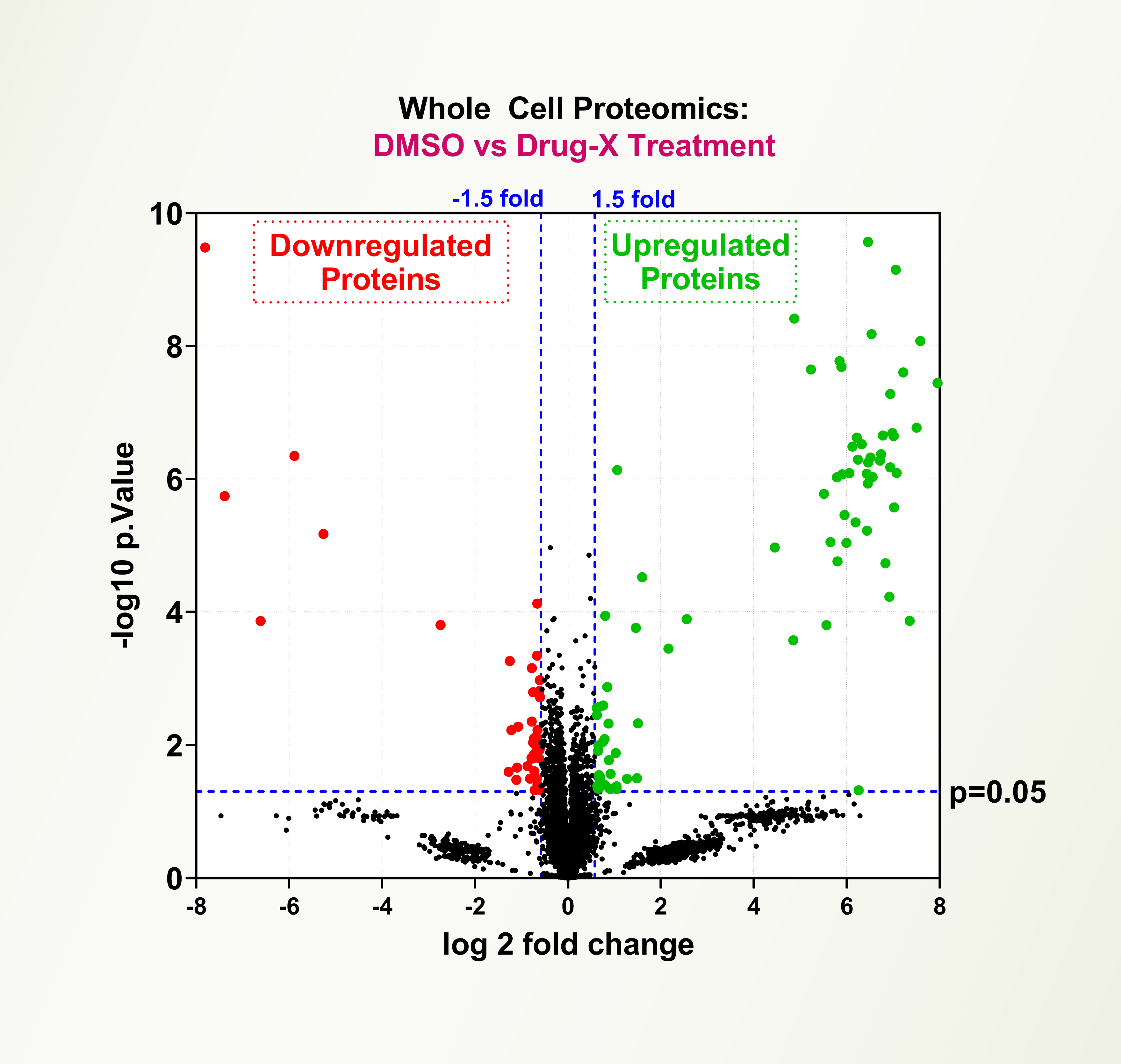The Ubiquitin Proteasome System (UPS) controls the principal functions of almost all the cellular proteins of human cells, and failures in this system often contribute directly or indirectly to the pathogenesis of many diseases, including cancer, inflammation, and neurodegeneration. There are ~700 E3 ubiquitin ligases and ~100 Deubiquitinases encoded in the human genome and the functions of most of these E3s and DUBs remain unknown. Recent development of PROTAC drugs to recruit E3 ligases and degrade therapeutic proteins highlight the value of studying E3 ligases. Evaluation of global proteome changes by PROTACs and small molecule drugs is an important tool to establish efficacy and specificity of drug molecules. Lifesensors offers whole cell proteomic services to characterize small molecules and PROTACs.
Service Highlights
- Robust proteomic profiling platform
- Effect of PROTACs, molecular glues and small molecule ligands on global proteome
- Target specificity and Tissue specificity of drugs
- Enables novel target and pathway discoveries
Related Products
TUBE1
Coated polymeric high-capacity magnetic beads to allow superior enrichment of polyubiquitinated proteins along with minimizing non-specific binding to proteins in tissue and cellular lysates.
Agarose-TUBE1
TUBEs display up to a 1000-fold increase in affinity for polyubiquitin moieties over the single ubiquitin binding associated domain (UBA). In addition, TUBEs protect polyubiquitinated proteins from deubiquitination and proteasomal degradation, allowing for detection at relatively low abundance.
VU1
Monoclonal antibodies that recognize polyubiquitylated proteins and free ubiquitin. VU-1 has been shown to recognize all ubiquitin linkages (mono, K6, K11, K27, K29, K33, K48, K63, and linear) by Western blotting. VU-1 is an excellent antibody for immunostaining applications generating robust ubiquitin detection and low background with an ability to detect subcellular ubiquitin localization.

